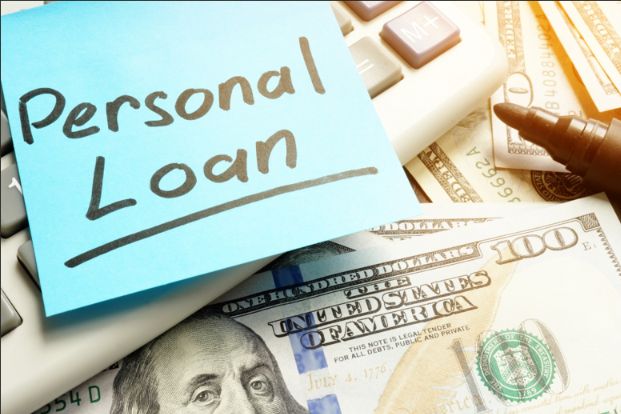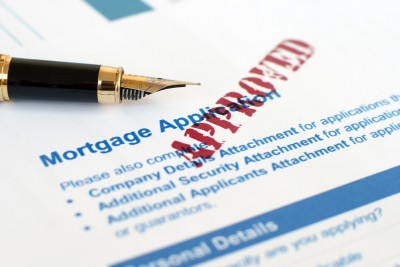Pros And Cons Of Debt Consolidation With A Personal Loan

If you’re juggling multiple debts, a debt consolidation loan can sound like a great way to simplify your finances. By combining several debts into one payment, you might lower your interest rates, reduce monthly payments, and make it easier to stay on top of your bills.
In fact, many people consider debt consolidation with a personal loan as a way to regain control of their finances. But, just like any financial decision, it’s not without its pros and cons.
Debt consolidation might seem like an instant fix for financial stress, but it’s important to take a closer look at both the benefits and potential pitfalls before jumping in. In this article, we’ll explore both sides of the equation, including how debt relief settlement options could be an alternative for some people who aren’t eligible for consolidation loans.
What Is Debt Consolidation With A Personal Loan?
Debt consolidation with a personal loan is the process of taking out one loan to pay off multiple debts, such as credit cards, personal loans, or medical bills. Instead of paying several creditors, you’ll make one monthly payment to your lender. This loan might come with a lower interest rate, which can help you save money on interest charges.
For example, if you have three credit cards with high interest rates, you might consolidate them into a personal loan with a fixed interest rate. As a result, you could lower your overall interest rate and reduce your monthly payments. This makes it easier to manage your finances and avoid missing payments.
Some people also turn to debt relief settlement programs when they struggle with overwhelming debt. These programs can help negotiate with creditors to lower your total debt, but they come with their own set of risks and considerations.
While debt settlement may lower your total balance, it could negatively impact your credit score, and the process might take longer.
Pros of Debt Consolidation With A Personal Loan
Debt consolidation isn’t right for everyone, but it has some clear advantages if managed carefully. Here are some of the biggest benefits of using a personal loan for consolidation:
1. Simplified Payments
When you consolidate your debt, you combine multiple payments into one single payment. This can be a huge relief if you’re overwhelmed by managing multiple bills. Instead of tracking several due dates, you’ll only need to worry about one, making it easier to stay organized and avoid missed payments.
The peace of mind that comes with simplicity can help you focus on paying down your debt.
2. Lower Interest Rates
If you’ve been dealing with high-interest credit cards or loans, debt consolidation through a personal loan can help you secure a lower interest rate.
Personal loans tend to offer lower rates than credit cards, which could save you money over time. If you can qualify for a loan with a significantly lower interest rate, more of your monthly payment will go toward reducing your principal balance, rather than just paying off interest.
3. Fixed Monthly Payments
Unlike credit cards, which have fluctuating payments based on your balance, personal loans typically come with fixed monthly payments.
This makes budgeting easier because you know exactly how much you’ll owe each month. With fixed payments, you won’t have to worry about unexpected changes to your monthly bill, and you’ll have a clear timeline for when your debt will be paid off.
4. Potential for Faster Debt Repayment
By lowering your interest rates and consolidating your debt into one monthly payment, you might find that you’re able to pay off your debt more quickly.
Since more of your payment will go toward your principal, rather than interest, you could reduce the total amount you owe faster. This could give you a clear path out of debt, helping you reach your financial goals sooner.
Cons of Debt Consolidation With A Personal Loan
While debt consolidation can be helpful, it’s important to weigh the potential drawbacks before committing. Here are some of the risks involved:
1. Upfront Fees and Costs
Many personal loans come with fees that could increase the total cost of consolidation. These fees might include origination fees, application fees, or prepayment penalties.
It’s important to read the fine print and understand the total cost of the loan before you commit. While a lower interest rate might seem attractive, the fees could make it less beneficial in the long run.
If you’re consolidating your debt through a personal loan, make sure to factor in any extra costs and compare them to the savings you’ll get from a lower interest rate. You should also be aware that some lenders might charge a fee if you pay off the loan early, which could limit your ability to save even more on interest if you come into extra money.
2. Risk of Accumulating More Debt
While debt consolidation can help you manage your existing debt, it doesn’t solve the underlying problem: your spending habits.
If you’re not careful, you might find yourself accumulating more debt after you consolidate. For example, if you’ve paid off your credit cards through consolidation but continue to use them, you could end up with new debt on top of your consolidated loan. This could lead to a deeper financial hole and make it harder to break free from debt.
It’s essential to use consolidation as a tool for improving your finances, not just as a quick fix. After consolidating, make a conscious effort to avoid adding more debt. Building healthy financial habits, such as budgeting and saving, is key to preventing future debt.
3. Shorter Repayment Terms Can Mean Higher Payments
While consolidating debt can sometimes lower your interest rate, it can also come with a shorter repayment period. This means your monthly payments could increase, which might be difficult to manage if you’re already living paycheck to paycheck.
It’s essential to make sure you can afford the new monthly payment before you consolidate. If the higher payment becomes too much, you might risk missing payments or falling back into debt.
Before committing to a consolidation loan, carefully calculate how much your monthly payment will be. Consider whether you can comfortably manage that payment alongside your other expenses. If the new payment will stretch your budget too thin, you might want to explore other options, such as debt relief programs, to help you manage your debt in a more sustainable way.
4. Impact on Your Credit Score
Consolidating your debt could have an impact on your credit score, especially if you don’t manage the new loan responsibly.
While paying off high-interest credit cards with a consolidation loan can help improve your score by reducing your credit utilization, missing payments or failing to stick to your repayment plan could damage your credit further.
It’s important to stay on top of your payments and treat your new loan responsibly. If you default or miss payments, your credit score could drop, which could make it harder to get approved for future credit. Staying diligent about your new payment plan and avoiding further debt will help protect your credit score.
Final Thoughts: Weighing Your Options
Debt consolidation with a personal loan can be a helpful tool for simplifying your debt, lowering interest rates, and potentially saving money. However, it’s not without its risks. Make sure you understand the fees, the impact on your monthly payments, and the possibility of accumulating more debt before making a decision.
If you’re unsure about consolidation, other options like debt relief settlement may be worth exploring, especially if you’re dealing with overwhelming debt. No matter which option you choose, the key to success is to stay committed to paying down your debt and avoid falling back into financial trouble.
With careful planning and disciplined spending, you can regain control of your finances and work your way toward a debt-free future.





